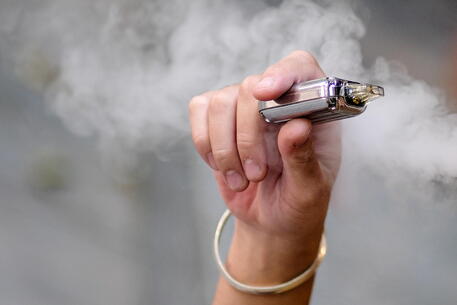(ANSA) - ROME, DEC 11 - Low taxes, high numbers of smokers?
Taxes on tobacco products also vary between member countries,
which directly influences the price and therefore consumption.
For example, in Ireland and the United Kingdom - an EU member
until 2020 - taxes are very high, which has contributed to a
significant reduction in the smoking rate, while in other
countries, such as Poland, taxes are lower and consumption
remains high.
Bulgaria ranks among the top ten countries globally in terms of
smoking and has the cheapest price of cigarettes in the EU, said
Dimitar Sabev from the Economic Research Institute at the
Bulgarian Academy of Sciences when presenting a recent study
carried out in cooperation with the Vienna Institute for
International Economic Studies on behalf of the Smoke-Free Life
Coalition Bulgaria.
The study supervisor further said that the price of cigarettes
should be taken into account. "Our simulations have shown that
smoking in Bulgaria as a percentage of the population will
continue to increase if the current model of cigarette taxation
is maintained," the expert noted.
According to Pavel Antonov of BlueLink, a civil action network,
and chairman of the Board of Directors of the Smoke-Free Life
Coalition Bulgaria association, the caretaker finance minister
"included raising excise duties in the plan he proposed".
Slovenia is already following many of the EU recommendations on
reducing exposure to second-hand smoke and aerosols, said Health
Minister Valentina Prevolnik Rupel. Stricter rules will come
into force next year such as a ban on flavoured e-cigarettes and
heated tobacco products as well as the closure of smoking rooms
in enclosed public and workplaces by the end of 2025.
The National Institute of Public Health estimates that a
substantial increase in the price of tobacco and related
products would also contribute to reducing smoking, as the
financial reason is the most important factor in the decision to
quit, alongside health concerns.
In Croatia, a new law is in the process of being passed that
adds heated tobacco products to the existing ban on smoking in
closed spaces. The new law also bans smoking outdoors within 20
metres of the entrance to a health or educational institution.
So far, there are no plans to extend the smoking ban to other
open public spaces. A ban on smoking on cafe terraces would
likely face great resistance, both from restaurateurs and their
guests. Going for a coffee is one of the most cherished social
customs which for many Croatians is unthinkable without a
cigarette. Despite various anti-smoking campaigns and increased
taxes on tobacco products, smoking remains a popular habit among
the Croatian population.
In Romania, where an average of 34% of the population smokes,
smoking is forbidden in all enclosed public spaces, public
transport and playgrounds. By law, smoking of any kind by
students in educational institutions is prohibited as well as
selling smoking products to individuals under the age of 18.
According to the 'Youth Risk Behavior Surveillance System
(YRBSS) 2022' study, 40% of high school students in Romania have
smoked at least one cigarette in their lifetime.
Outside of the EU
Bosnia and Herzegovina: Starting from December 13, the
Federation of Bosnia and Herzegovina - one of BiH's two entities
- is implementing strict bans on smoking in enclosed public
spaces. From January 2025, cigarette and tobacco prices will
rise due to increased excise taxes, as part of a strategy to
reduce tobacco consumption through financial pressure. In
contrast, in the Republika Srpska entity smoking is permitted in
most venues, although regulatory changes are occasionally
discussed.
Albania increased the excise duty on tobacco in January 2023. In
a bid to further improve health protection from tobacco
products, the Albanian Commission for European Affairs in summer
proposed changes to an existing anti-tobacco law. It aims to
toughen the penalties for those who sell or offer tobacco to
those under the age of 18 as well as prohibiting the sale of
electronic cigarettes, shishas, ;;hookahs and other products to
this group.
This article is published twice a week. The content is based on
news by agencies participating in the enr, in this case AFP,
Agerpres, ANSA, APA, ATA, BTA, dpa, EFE, FENA, HINA, STA, and
TT. (ANSA).
Tobacco use: Differences, shared commitment to public health (2)
Smoking causes some 700,000 premature deaths per year
